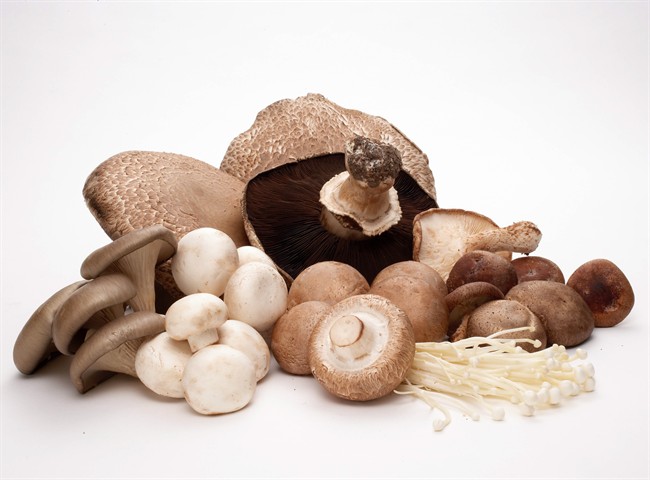Scientists are zeroing in on how a healthy diet could help keep your brain healthy. In their latest findings, they suggest that certain compounds in mushrooms could delay or prevent dementia and Alzheimer’s disease.

Doctors out of the University of Malaya in Kuala Lumpur say the compounds in mushrooms help with increasing nerve growth in the brain and protect against inflammation – both key factors in staving off dementia.
READ MORE: What are the early warning signs and symptoms of dementia?
“Mushrooms and their extracts appear to hold many health benefits, including immune-modulating effects. A number of edible mushrooms have been shown to contain rare and exotic compounds that exhibit positive effects on brain cells,” the authors wrote in their study.
“In short, these mushrooms may be regarded as functional foods for the mitigation of neurodegenerative diseases,” they say.
They call mushrooms a “functional food,” which means they include ingredients that have a “potentially positive effect on health beyond basic nutrition.”
READ MORE: Here’s why the Mediterranean diet could preserve your brain’s health
Oatmeal is an example for its high soluble fibre content that lowers cholesterol levels, while fresh orange juice is fortified with calcium for bone health. Tumeric, green tea and gingko are other examples the scientists point to because of their antioxidants and brain-protective benefits.
For their study, the researchers looked at 11 types of edible and medicinal mushrooms to see if they boosted brain health in mice.
READ MORE: 5 misconceptions about dementia
Turns out, some did from the codyceps, the lion’s mane mushroom, and the reishi mushroom for example.
They helped — from lowering inflammation to strengthening the immune system and improving memory.
“Mushrooms contain diverse yet exclusive bioactive compounds that are not found in plants. It is very likely that a dietary intake of mushroom or mushroom-based extracts might have beneficial effects on human health and improve brain function,” the study read.
READ MORE: 5 ways to keep your brain young and healthy
The full findings were published in the Journal of Medicinal Food.
Earlier this month, Scottish scientists suggested the Mediterranean diet could have lasting effects on the brain.
The diet is packed with fish, fruits, vegetables, olive oil and beans.
Last year, Alzheimer Society of Canada experts told Global News that healthy eating was just as important for brain health as staying socially active, learning a new language or reading a book.
READ MORE: Why docs say these mood changes are a warning sign for Alzheimer’s
The brain directs our heart and all of our organs to do the jobs they’re meant to do and what we’re learning is there are specific foods that are particularly good for brain health,” Mary Schulz, director of education, said.
So what should you be eating? Look for colour when putting together your meals because those are the ingredients that’ll be packed with antioxidants and other nutrients to nourish your brain.
READ MORE: 6 misconceptions about nutrition and healthy eating
Blue and purple fruits and vegetables — blackberries, blueberries, purple cabbage and plums — are a good start. While green — from broccoli, avocados, spinach, and pears — also help.
Reds — from beets, raspberries, red grapes, tomatoes and red peppers — also make good choices, Schulz said.
Fish is packed with omega-3s, so reach for tuna, salmon and herring to feed your brain.
carmen.chai@globalnews.ca
Follow @Carmen_Chai




Comments